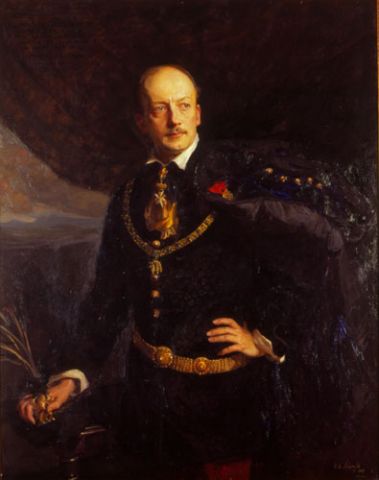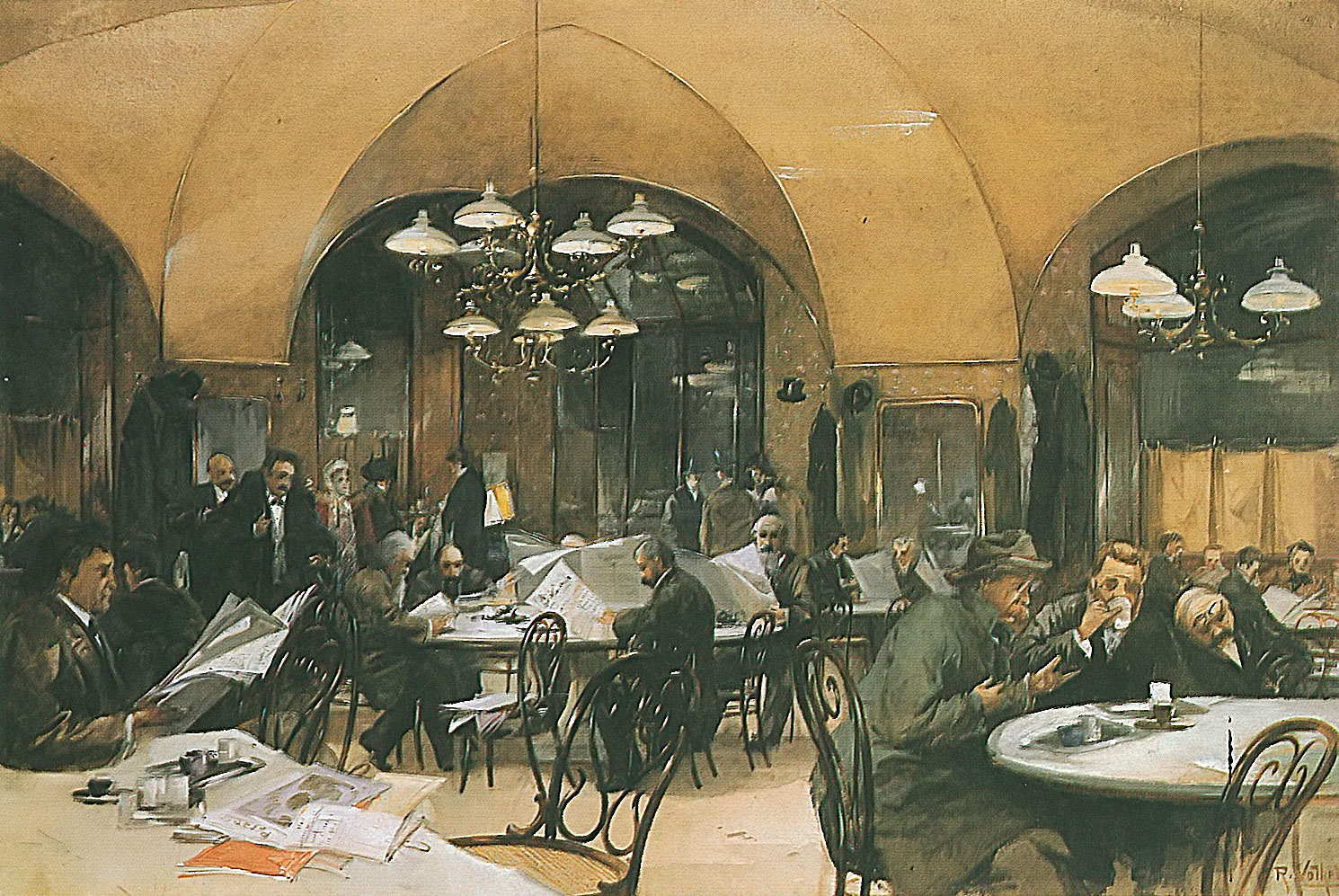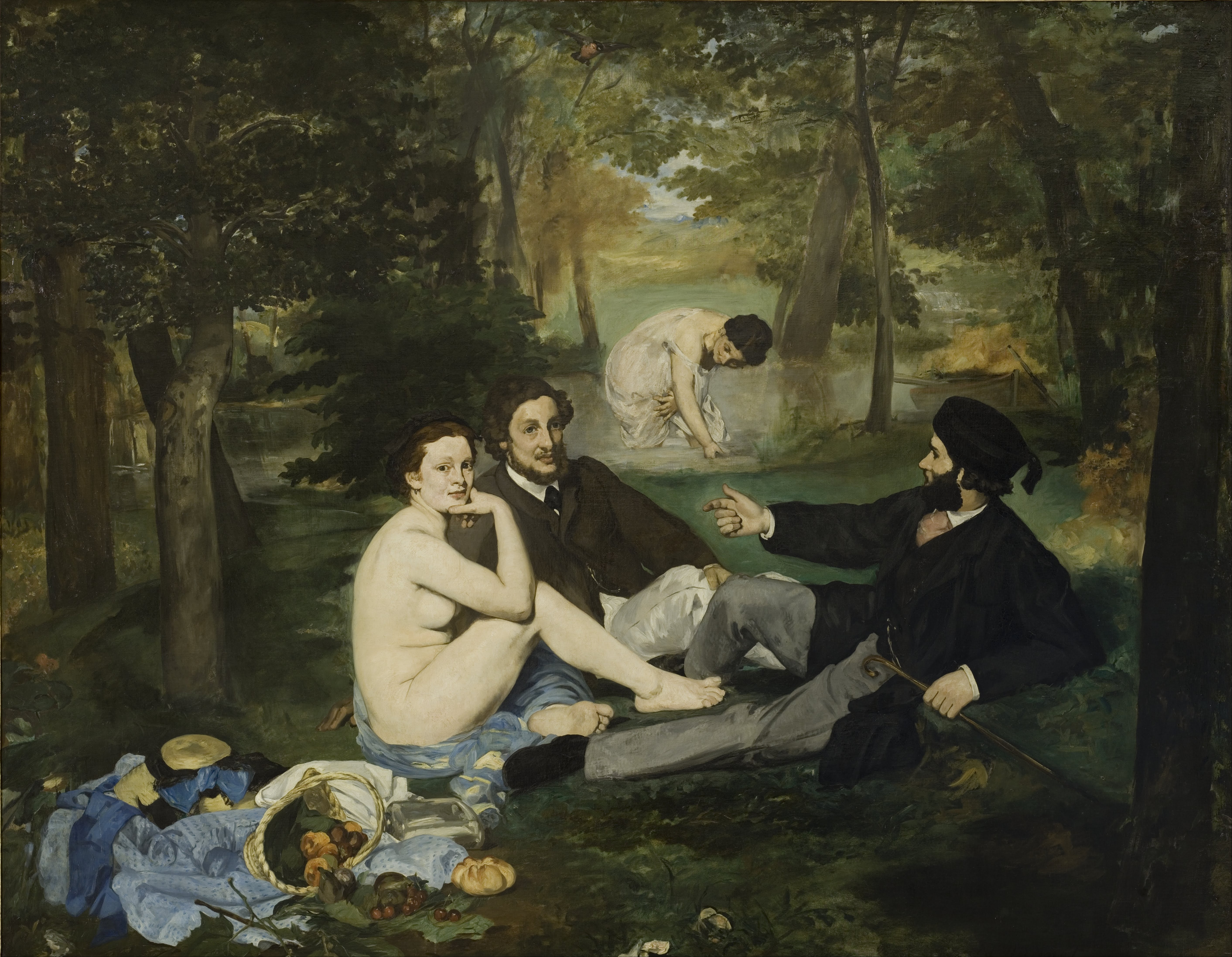|
Leopold Andrian
Leopold Andrian, actually Leopold Freiherr Ferdinand von Andrian zu Werburg (May 9, 1875 in Berlin − November 19, 1951 in Fribourg) was an Austrians, Austrian Austrian literature, author, dramatist and diplomat. Life and career Andrian came from the Andrian-Werburg noble family. He was a grandson of the German Jewish opera composer Giacomo Meyerbeer and the brother of psychologist Gabriele von Wartensleben (1870-1953). Amongst his friends were Arthur Schnitzler, Stefan George and Hugo von Hofmannsthal. After studying Law he began a diplomatic career in the Federal Ministry for European and International Affairs (Austria), Ministry of Foreign Affairs of Austria-Hungary. He became an expert for Russia and Poland and a close advisor of minister Count Leopold Berchtold. In Berchtold's order Andrian outlined the war aims of the Habsburg monarchy at the beginning of World War I. After the war he worked for the Burgtheater in Vienna and the Salzburg Festival. He wrote especially ly ... [...More Info...] [...Related Items...] OR: [Wikipedia] [Google] [Baidu] |
Count Leopold Berchtold
Leopold Anton Johann Sigismund Josef Korsinus Ferdinand Graf Berchtold von und zu Ungarschitz, Frättling und Püllütz (, ) (18 April 1863 – 21 November 1942) was an Austro-Hungarian politician, diplomat and statesman who served as Imperial Foreign Minister at the outbreak of World War I. Life Early life Born in Vienna on 18 April 1863 as the son of Count Sigismund Berchtold von und zu Ungarschitz, Frättling und Püllütz (1834–1900) and his wife, Countess Josephine von Trauttmansdorff-Weinsberg (1835–1894). He belonged to a wealthy Austrian noble family that owned lands in Moravia and Hungary. He was reputed to be one of Austria-Hungary's richest men. His paternal grandparents were Count Siegmund Andreas Corsinus Berchtold von und zu Ungarschitz and Countess Ludmilla Maria Theresia Wratislavová z Mitrowicz. His maternal grandparents were Franz Joseph Ferdinand von Trauttmansdorff-Weinsberg (grandson of Prince Ferdinand von Trauttmansdorff) and Countess Josephine ... [...More Info...] [...Related Items...] OR: [Wikipedia] [Google] [Baidu] |
Writers From Berlin
A writer is a person who uses written words in different writing styles, genres and techniques to communicate ideas, to inspire feelings and emotions, or to entertain. Writers may develop different forms of writing such as novels, short stories, monographs, travelogues, plays, screenplays, teleplays, songs, and essays as well as reports, educational material, and news articles that may be of interest to the general public. Writers' works are nowadays published across a wide range of media. Skilled writers who are able to use language to express ideas well, often contribute significantly to the cultural content of a society. The term "writer" is also used elsewhere in the arts and music, such as songwriter or a screenwriter, but also a stand-alone "writer" typically refers to the creation of written language. Some writers work from an oral tradition. Writers can produce material across a number of genres, fictional or non-fictional. Other writers use multiple ... [...More Info...] [...Related Items...] OR: [Wikipedia] [Google] [Baidu] |
Austrian People Of German-Jewish Descent
Austrian may refer to: * Austrians, someone from Austria or of Austrian descent ** Someone who is considered an Austrian citizen * Austrian German dialect * Something associated with the country Austria, for example: ** Austria-Hungary ** Austrian Airlines (AUA) ** Austrian cuisine ** Austrian Empire ** Austrian monarchy ** Austrian German (language/dialects) ** Austrian literature ** Austrian nationality law ** Austrian Service Abroad ** Music of Austria **Austrian School of Economics * Economists of the Austrian school of economic thought * The Austrian Attack variation of the Pirc Defence chess opening. See also * * * Austria (other) * Australian (other) Australian(s) may refer to: Australia * Australia, a country * Australians, citizens of the Commonwealth of Australia ** European Australians ** Anglo-Celtic Australians, Australians descended principally from British colonists ** Aboriginal Aus ... * L'Autrichienne (other) {{disambig Lan ... [...More Info...] [...Related Items...] OR: [Wikipedia] [Google] [Baidu] |
Diplomats For Austria-Hungary
A diplomat (from ; romanized ''diploma'') is a person appointed by a state, intergovernmental, or nongovernmental institution to conduct diplomacy with one or more other states or international organizations. The main functions of diplomats are representation and protection of the interests and nationals of the sending state; initiation and facilitation of strategic agreements, treaties and conventions; and promotion of information, trade and commerce, technology, and friendly relations. Seasoned diplomats of international repute are used in international organizations (for example, the United Nations, the world's largest diplomatic forum) as well as multinational companies for their experience in management and negotiating skills. Diplomats are members of foreign services and diplomatic corps of various nations of the world. The sending state is required to get the consent of the receiving state for a person proposed to serve in key diplomatic positions such as an ambassador ... [...More Info...] [...Related Items...] OR: [Wikipedia] [Google] [Baidu] |
German Barons
German(s) may refer to: * Germany, the country of the Germans and German things **Germania (Roman era) * Germans, citizens of Germany, people of German ancestry, or native speakers of the German language ** For citizenship in Germany, see also German nationality law **Germanic peoples (Roman era) * German diaspora * German language * German cuisine, traditional foods of Germany People * German (given name) * German (surname) * Germán, a Spanish name Places * German (parish), Isle of Man * German, Albania, or Gërmej * German, Bulgaria * German, Iran * German, North Macedonia * German, New York, U.S. * Agios Germanos, Greece Other uses * German (mythology), a South Slavic mythological being * Germans (band), a Canadian rock band * "German" (song), a 2019 song by No Money Enterprise * ''The German'', a 2008 short film * "The Germans", an episode of ''Fawlty Towers'' * ''The German'', a nickname for Congolese rebel André Kisase Ngandu See also * Germanic (disambi ... [...More Info...] [...Related Items...] OR: [Wikipedia] [Google] [Baidu] |
Austrian LGBTQ Poets
Austrian may refer to: * Austrians, someone from Austria or of Austrian descent ** Someone who is considered an Austrian citizen * Austrian German dialect * Something associated with the country Austria, for example: ** Austria-Hungary ** Austrian Airlines (AUA) ** Austrian cuisine ** Austrian Empire ** Austrian monarchy ** Austrian German (language/dialects) ** Austrian literature ** Austrian nationality law ** Austrian Service Abroad ** Music of Austria **Austrian School of Economics * Economists of the Austrian school of economic thought * The Austrian Attack variation of the Pirc Defence chess opening. See also * * * Austria (other) * Australian (other) Australian(s) may refer to: Australia * Australia, a country * Australians, citizens of the Commonwealth of Australia ** European Australians ** Anglo-Celtic Australians, Australians descended principally from British colonists ** Aboriginal Aus ... * L'Autrichienne (other) {{disambig Lan ... [...More Info...] [...Related Items...] OR: [Wikipedia] [Google] [Baidu] |
LGBTQ Diplomats
LGBTQ people are individuals who are lesbian, gay, bisexual, transgender, queer, or questioning. Many variants of the initialism are used; LGBTQIA+ people incorporates intersex, asexual, aromantic, agender, and other individuals. The group is generally conceived as broadly encompassing all individuals who are part of a sexual or gender minority, including all sexual orientations, romantic orientations, gender identities, and sex characteristics that are not heterosexual, heteroromantic, cisgender, or endosex, respectively. Scope and terminology A broad array of sexual and gender minority identities are usually included in who is considered LGBTQ. The term ''gender, sexual, and romantic minorities'' is sometimes used as an alternative umbrella term for this group. Groups that make up the larger group of LGBTQ people include: * People with a sexual orientation that is non-heterosexual, including lesbians, gay men, bisexual people, and asexual people * People who are t ... [...More Info...] [...Related Items...] OR: [Wikipedia] [Google] [Baidu] |
Young Vienna
Young Vienna (''Jung-Wien''), also referred to as Young Austria, was a society of ''fin de siècle'' writers who met in Vienna's Café Griensteidl and other nearby coffeehouses in the late nineteenth century. The group turned away from the prevailing Naturalism (literature), Naturalism of the time and experimented with various facets of Modernism, including Symbolism (arts), Symbolism and Impressionism (literature), Impressionism. In his review of turn of the century Vienna, historian Carl Schorske wrote of the movement that they "challenged the moralistic stance of nineteenth century literature in favor of sociological truth and psychological - especially sexual - openness." Hermann Bahr was considered the group's spokesman. Other members included Arthur Schnitzler, , Peter Altenberg, Richard Beer-Hofmann, Felix Salten, Raoul Auernheimer, Hugo von Hofmannsthal, and Karl Kraus (writer), Karl Kraus. Kraus would later distance himself from the group, and in his essay "The Demol ... [...More Info...] [...Related Items...] OR: [Wikipedia] [Google] [Baidu] |
Impressionism
Impressionism was a 19th-century art movement characterized by visible brush strokes, open Composition (visual arts), composition, emphasis on accurate depiction of light in its changing qualities (often accentuating the effects of the passage of time), ordinary subject matter, unusual visual angles, and inclusion of movement as a crucial element of human perception and experience. Impressionism originated with a group of Paris-based artists whose independent exhibitions brought them to prominence during the 1870s and 1880s. The Impressionists faced harsh opposition from the conventional art community in France. The name of the style derives from the title of a Claude Monet work, ''Impression, soleil levant'' (''Impression, Sunrise''), which provoked the critic Louis Leroy to coin the term in a Satire, satirical 1874 review of the First Impressionist Exhibition published in the Parisian newspaper ''Le Charivari''. The development of Impressionism in the visual arts was soon foll ... [...More Info...] [...Related Items...] OR: [Wikipedia] [Google] [Baidu] |
Symbolism (arts)
In works of art, literature, and narrative, a symbol is a concrete element like an object, character, image, situation, or action that suggests or hints at abstract, deeper, or non-literal meanings or ideas.Johnson, Greg; Arp, Thomas R. (2018). ''Perrine's Literature: Structure, Sound and Sense, Third Edition''. Cengage Learning. pp. 286-7: "A literary symbol is something that means more than what it suggests on the surface. It may be an object, a person, a situation, an action, or some other element that has a literal meaning in the story but that suggests or represents other meanings as well."Kennedy, X. J.; Gioia, Dana (2007). ''Literature: An Introduction to Fiction, Poetry, Drama, and Writing, Tenth Edition''. Pearson Longman. p. 292: " a symbol: in literature, a thing that suggests more than its literal meaning. Symbols generally do not 'stand for' any one meaning, nor for anything absolutely definite; they point, they hint, or, as Henry James put it, they cast long shadows ... [...More Info...] [...Related Items...] OR: [Wikipedia] [Google] [Baidu] |
Salzburg Festival
The Salzburg Festival () is a prominent festival of music and drama established in 1920. It is held each summer, for five weeks starting in late July, in Salzburg, Austria, the birthplace of Wolfgang Amadeus Mozart. Mozart's operas are a focus of the festival; one highlight is the annual performance of Hofmannsthal's play ''Jedermann (play), Jedermann'' (''Everyman''). Since 1967, an annual Salzburg Easter Festival has also been held, organized by a separate organization. History Music festivals were held in Salzburg at irregular intervals since 1877 by the International Mozarteum Foundation but were discontinued in 1910. A festival was planned for 1914, but it was cancelled at the outbreak of World War I. In 1917, Friedrich Gehmacher and Heinrich Damisch formed an organization known as the ''Salzburger Festspielhaus-Gemeinde'' to establish an annual festival of drama and music, emphasizing especially the works of Mozart. At the close of the war in 1918, the festival's revival wa ... [...More Info...] [...Related Items...] OR: [Wikipedia] [Google] [Baidu] |






